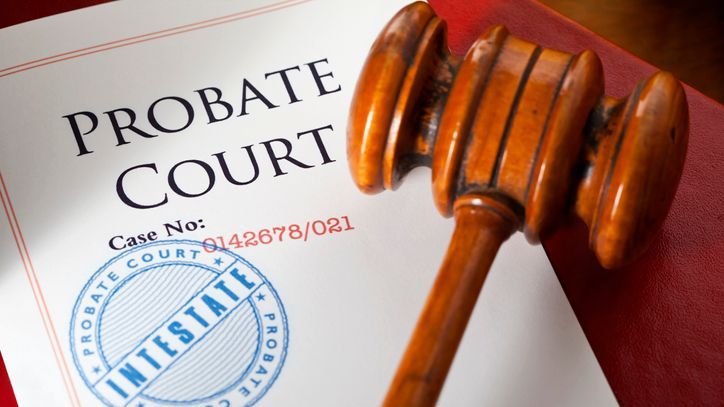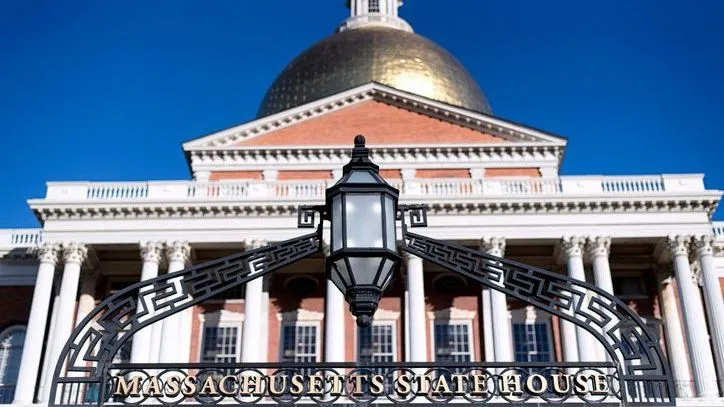Probate is the legal process through which a deceased person’s estate – including their assets and debts – is managed and distributed. Probate can be complex, time-consuming and potentially costly in Massachusetts, especially in cases of larger or disputed estates. However, there are ways to avoid probate altogether in the Bay State, but they require some planning and an understanding of how this legal process works.
Need help planning your estate? A financial advisor with estate planning expertise can be a valuable resource.
How Probate Works in Massachusetts
In Massachusetts, the probate process ensures that a deceased person’s assets get distributed according to their will or state law, thereby providing a legal avenue for their wishes to be respected.
There are two common variations of probate in Massachusetts: Informal and formal. The former is a simplified process designed for straightforward cases, requiring less court supervision. In contrast, the latter is a more detailed process that requires greater court involvement.
Whether an estate goes through informal and formal probate depends on factors such as the nature of the deceased’s estate and any potential conflicts among beneficiaries. For instance, if the estate is straightforward with no disputes among beneficiaries, informal probate may be more suitable. However, for complex estates or those with disputes, formal probate might be more appropriate.
According to the State of Massachusetts, the state Uniform Probate Code Magistrate – not a judge – administers informal probate. As a result, the process can be more expedient, taking as few as seven days for a magistrate to issue an order. However, informal probate is reserved for only cases in which the original will and official death certificate of the deceased are available. Keep in mind that informal probate is only possible when a judge isn’t needed to sign a final decree, the names and locations of heirs are known, as well as other requirements.
However, several types of circumstances will necessitate formal probate. For example, formal probate is necessary when the will is a copy (not the original), it has handwritten words added to it or words deleted from it. Formal probate is also required when a minor or an incapacitated person needs to be represented. If there are objections to the process playing out via informal probate, the formal process must take place.
There is a third kind of probate process in Massachusetts – late/limited probate – designated for estates that haven’t been settled within three years of a person’s death.
Ways to Avoid Probate in Massachusetts

In Massachusetts, probate can take up to a year, sometimes even longer if the estate is complex. It can also be costly, with court and attorney fees taking up to 5% of the estate’s value. Furthermore, probate is a public process, meaning the details of the deceased’s estate become accessible to the public. Therefore, many individuals use different estate planning strategies to avoid probate so that they could maintain privacy, save on costs and expedite the distribution of assets.
In Massachusetts, you have several strategies at your disposal. The most common methods are living trusts, joint ownership, payable-on-death accounts and transfer-on-death registration. Each method comes with its own benefits and drawbacks, and its suitability varies depending on your circumstances and the type of assets involved.
Living Trusts
A living trust is a legal entity where you can place your assets while you’re alive. When you pass away, these assets are then managed by a successor trustee who’s responsible for distributing them to your beneficiaries, bypassing the probate process. Living trusts offer privacy, as the details of the trust are not made public. They also provide flexibility, as you can modify them at any time during your lifetime. Moreover, the transfer of assets to beneficiaries is usually swifter when compared with the probate process.
However, setting up a living trust comes with its own set of challenges. Living trusts can be expensive to set up and maintain. They require the transfer of property into the trust, which might involve fees and a significant amount of paperwork. A living trust only covers the assets explicitly placed into it. Any assets not included in the trust might still be subject to probate.
Joint Ownership
Joint ownership refers to assets owned by two or more individuals. Upon the death of one of the owners, the decedent’s share automatically passes to the surviving owners, thus avoiding probate. In Massachusetts, two types of joint ownership can be used to avoid probate: Joint tenancy with rights of survivorship and tenancy by the entirety.
- Joint tenancy with rights of survivorship: Joint tenants with rights of survivorship share equal ownership of property, and the surviving owner automatically inherits the decedent’s share upon their death. This type of ownership can apply to various types of assets, including real estate and bank accounts.
- Tenancy by the entirety: Similar to joint tenancy with rights of survivorship, this form of joint ownership is exclusively for married couples and can provide some protection against creditors.
Payable-on-Death Accounts
A payable-on-death account is a type of bank account that allows the account holder to designate a beneficiary who will receive the funds directly upon the account holder’s death, bypassing probate. These accounts are simple to set up, often requiring only the completion of a form provided by the bank.
However, payable-on-death accounts only cover cash assets. They do not apply to real estate, vehicles, securities or other types of property. While they can be a useful part of an estate plan, they often need to be combined with other methods to fully avoid probate.
Transfer-on-Death Designation
A transfer-on-death designation is a way to pass the ownership of securities like stocks and bonds directly to a designated beneficiary upon the owner’s death, avoiding probate.
However, not all types of assets can be registered in this way. For instance, as of the latest update, Massachusetts law does not allow for transfer-on-death registration of real estate or vehicles. This limitation means that other methods of probate avoidance, such as joint ownership or living trusts, may be more effective for these types of assets in Massachusetts.
Probate for Small Estates

Small estates, in the context of probate, refer to properties valued under a certain amount, which varies by jurisdiction. In Massachusetts, estates worth less than $25,000 may not be subject to full probate. In fact, there are two official processes by which small estates can go through an expedited form of probate: Voluntary administration and summary administration.
Voluntary Administration of Small Estates
Voluntary administration is a type of simplified probate for estates that are worth less than $25,000 and do not include real estate. To be eligible for voluntary administration, 30 days must pass after the decedent’s death and no petition has been filed requesting probate.
To apply for voluntary administration, the estate will have to file a form called a Voluntary Administration Statement (Form MPC 170), along with a certified copy of the death certificate and original will, if there is one. These documents can be filed online, by mail or in person at the Probate & Family Court for the county in which the person was living when they died. Keep in mind there’s a $115 filing fee for voluntary administration.
Summary Administration of Small Estates
Like voluntary administration, summary administration is a streamlined probate process used when an estate’s value is below a certain threshold. However, summary administration is a bit more complicated.
According to the General Laws of Massachusetts, the personal representative can “disburse and distribute” the estate to heirs via summary administration, as long as a number of conditions are met. This can happen when the value of the entire estate – once all debts are accounted for – is not greater than any family allowances, exempt property allowances, the cost of probate, funeral expenses, as well as any medical bills related to the person’s last illness.
Bottom Line
There are several avenues and strategies for avoiding probate in Massachusetts, including living trusts, joint ownership, payable-on-death accounts and transfer-on-death designations. But, small estates may qualify for a simplified version of probate through either voluntary and summary administration.
Estate Planning Tips
- The estate tax is a federal levy on the value of an estate that exceeds $13.61 million in 2024. This tax ranges from 18% to as high as 40%. However, it’s important to remember that 12 states, plus the District of Columbia, impose their own estate taxes. Meanwhile, your beneficiaries could also be on the hook for an inheritance tax.
- Trust and estate planning can be overwhelming but a financial advisor with expertise in these areas can help. Finding a financial advisor doesn’t have to be hard. SmartAsset’s free tool matches you with up to three vetted financial advisors who serve your area, and you can have a free introductory call with your advisor matches to decide which one you feel is right for you. If you’re ready to find an advisor who can help you achieve your financial goals, get started now.
Photo credit: ©iStock.com/DenisTangneyJr, ©iStock.com/stocknshares, ©iStock.com/Timothy Martin
